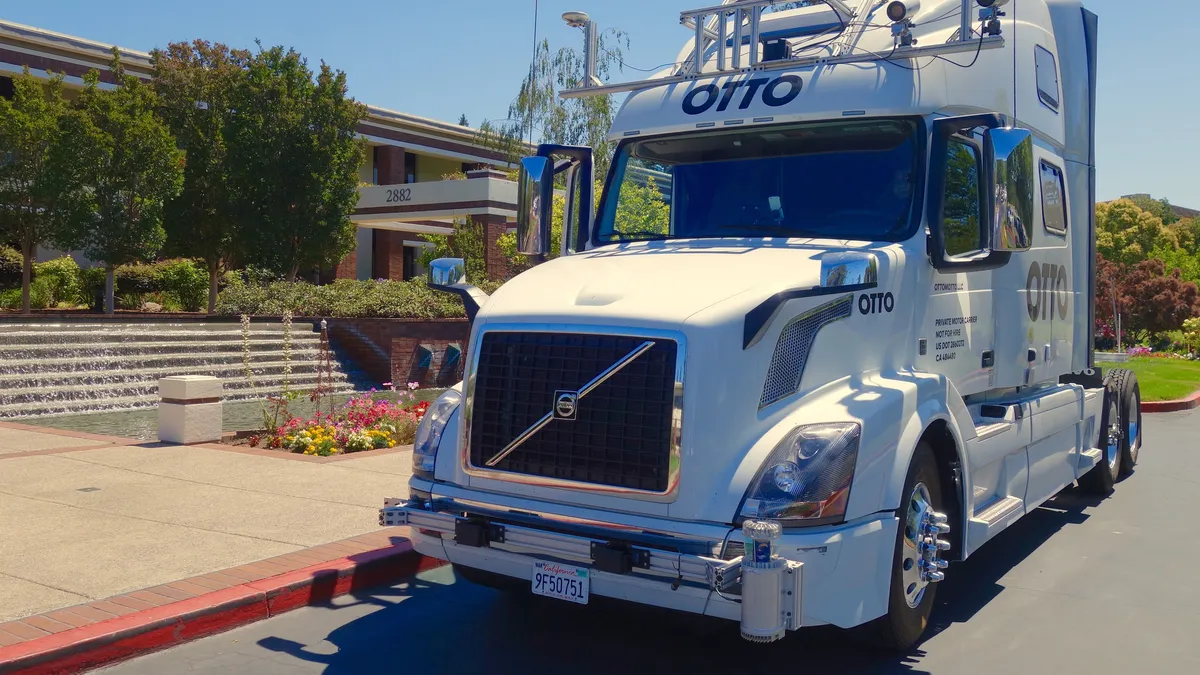Dive Brief:
- With the roll-out of the new program Uber Freight, in which truck drivers are more easily able to locate shipments for transport, differing degrees of optimism and skepticism exist within the industry, WSIL reported.
- Some drivers believe the program allows greater ease of entry to get started in the industry, while others note the likelihood of even more intense competition. Regardless, compensation — which truckers assert can take anywhere from a day to half a year — will be a welcome sight, as Uber Freight promises that pay for the drivers will be either instantly or within a week, and with no added fees.
- With Uber bringing greater competitiveness in the market, some truckers voice the concern that a price war is possible, which could ultimately lower driver fees.
Dive Insight:
Uber Freight allows qualified drivers in Dallas, Austin, San Antonio and Houston to find loads either by destination, deadline or required equipment (such as refrigeration for fruit). Once a driver locates a suitable load, he need only indicate interest and confirmation by via smartphone. To be qualified, drivers must demonstrate that they hold a commercial license, have clean record, carry required insurance, and are able and willing to abide by federal regulations.
But with greater control comes greater responsibility. Drivers operating without a middle man must make all arrangements and attempt to optimize trips to carry cargo both to and from a destination. With regular Uber, a missed appointment may cost only a few minutes of extra time as other drivers — as well as those operating on competing platforms such as Lyft — can quickly remedy the situation. What happens if freight drivers don't succeed? An empty compartment and a wasted trip carries a much greater cost than merely time.
There's also the matter of price. Companies such as Total Quality Logistics (TQL) employ apps and attract drivers with the promise of timely payment, operating on the same terms as does Uber, only with substantially more experience. Existing brokerages typically take a 12% cut on deals they arrange; in its cab-equivalent business, Uber takes 20%. Will Uber lower that rate to compete and lure drivers away from TQL?













